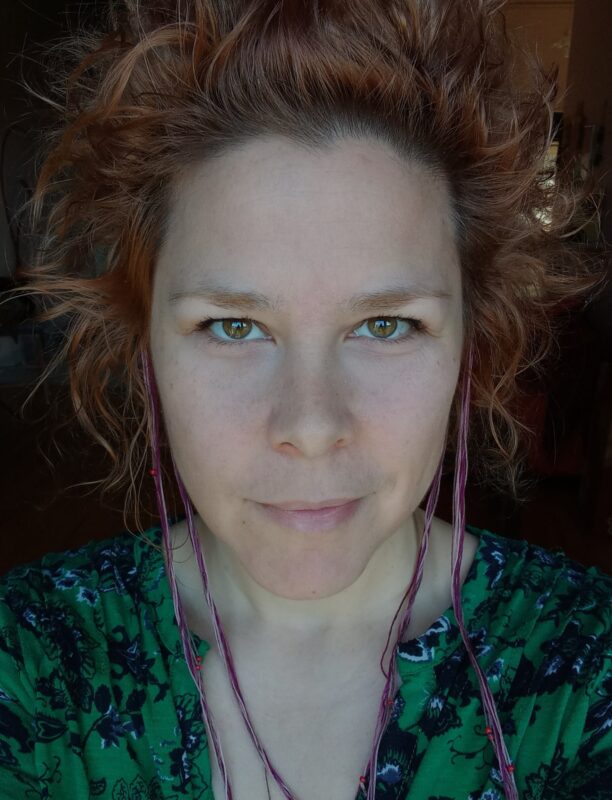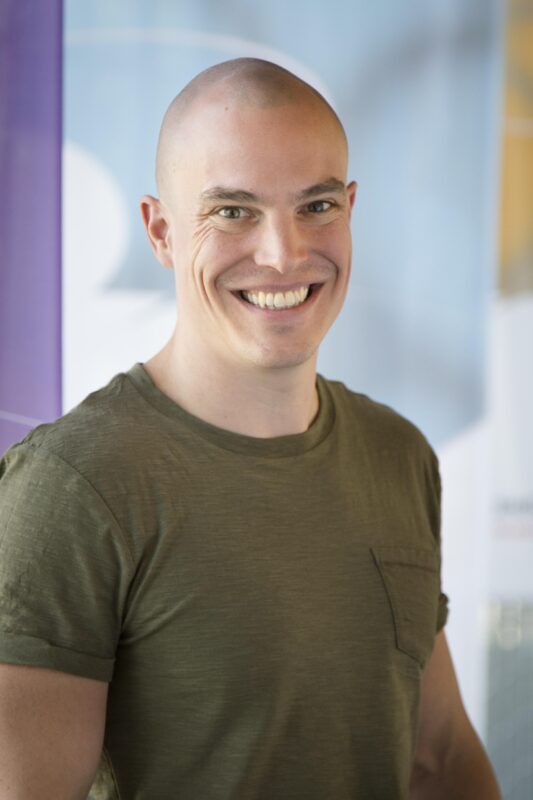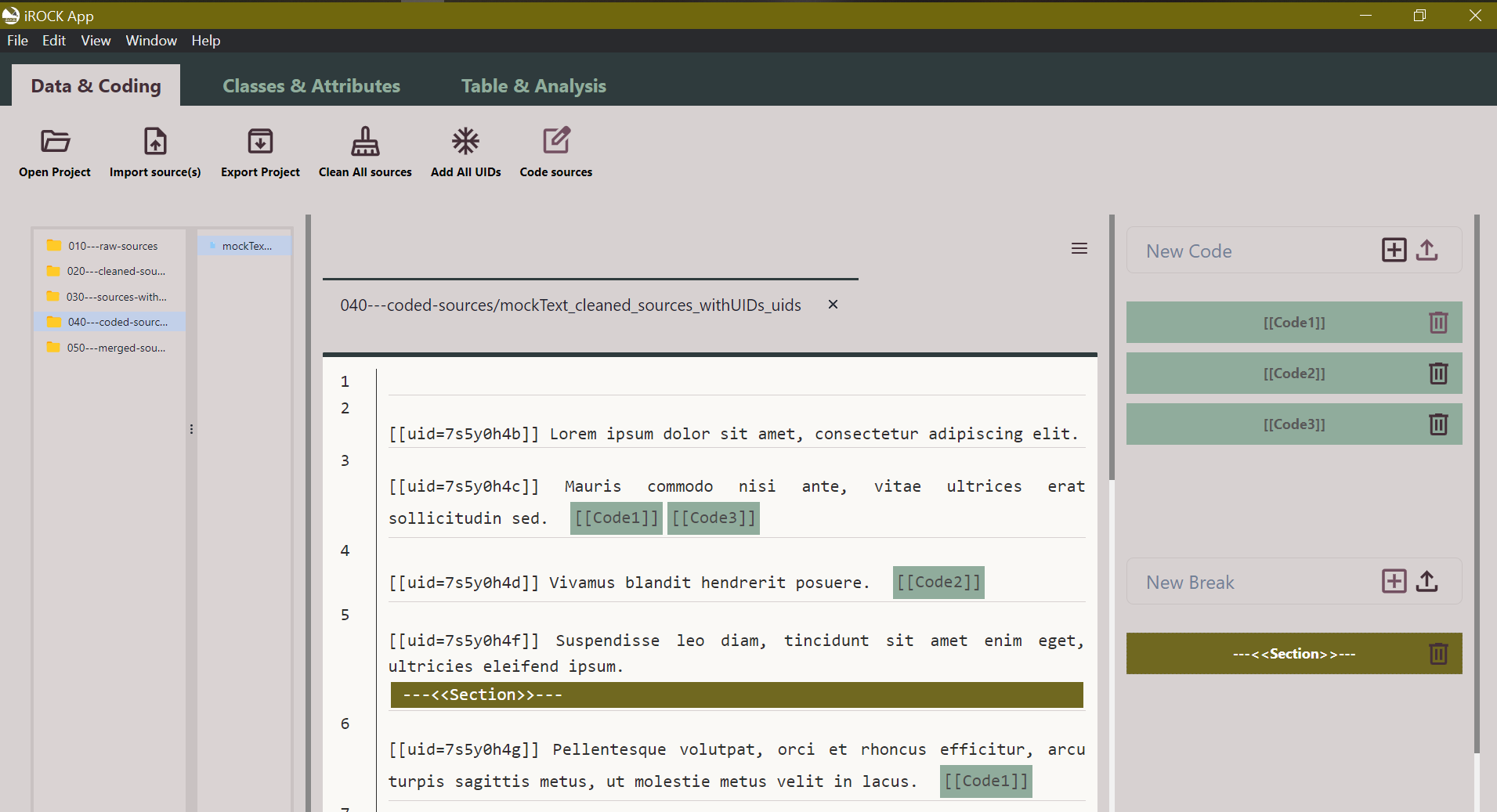
ROCK – Reproducible Open Coding Kit, submitted by Dr. Szilvia Zörgő and Dr. Gjalt-Jorn Peters, respectively Marie Curie Fellow at Maastricht University and Associate Professor of Theory, Methods & Statistics at Open Universiteit and Visiting Researcher at Maastricht University, is one of the winning projects of the 2022 edition of the YERUN Open Science Awards.
ROCK is a standard for performing qualitative coding and analyses in a transparent manner. It was developed by the applicants to tackle the lack of Open Science tools for qualitative research.

One year after receiving the award, we had an insightful conversation with Dr. Zörgö and Dr. Peters to delve into the progress of its project’s follow-up. We explored how the YERUN award has been instrumental in propelling Open Science initiatives within its institution and beyond.
.
Szilvia,Gjalt-Jorn, can you tell us a bit about the follow-up to your project and how the YERUN award has helped you boost Open Science?
The ROCK is a human- and machine-readable standard for working with qualitative data: chiefly, how (coded) data, codes, and segmentation are stored in a plain text file format. This enables interoperability and enhances the potential for collaboration. The standard was first implemented in the {rock} R package, which provides researchers with the functionality of proprietary computer-assisted qualitative data analysis software. Uptake has been limited (~25K downloads in 5 years), as few researchers from the target group have experience with R or the incentive to learn how to use R. The YERUN Open Science award has greatly aided the development of a graphical user interface for the ROCK (iROCK), setting a lower threshold for employing the ROCK standard. iROCK aims to increase accessibility to qualitative analysis software by providing the most comprehensive, freely available interface for such research.
How is in your view the implementation of Open Science proceeding in academia in general? Do you see important advancements?
Albeit Open Science began as a grassroots movement, many of its dimensions (especially open access and open data) are now a mandated modus operandi for most funders and institutions. Most Open Science practices were developed and advocated for in quantitative research, and update in qualitative methods is not gaining steam. Qualitative research also suffers a dearth of infrastructure (such as open-source software and open standards), and in addition, researchers often are impeded by their equating Open Science solely or mostly with open data (to the detriment of visibility of, for example, open materials and open infrastructure). Luckily, younger generations of researchers (in both qualitative and quantitative approaches) have embraced Open Science practices, but there is still much advancement ahead in terms of increasing transparency and accountability in qualitative research. Achieving this culture change will bridge grassroots and high-level policy in academia in general; much of this work, in terms of preserving the grassroots aspect, is continuously being carried out by Open Science communities. It will be very interesting to see how the culture change takes place, and how applying Open Science practices to qualitative research will manifest and potentially transform.
How has your Open Science initiative contributed to building a community that fosters and implements Open Science practices within your university?
In the past year, YERUN has enabled us to hold ROCK workshops at Maastricht University and the European Health Psychology Society, as well as initiate projects at non-YERUN affiliated universities, both in the Netherlands and abroad. The awardees already fostered international collaborations where teams from, for example, the United States, Canada, Germany, and Hungary are using the ROCK standard to make their work more interoperable, and their data management more transparent.
Based on your experience, what’s your main recommendation for this year’s awardees?
As a lesson we have learned over the years, we would caution researchers and developers to carefully consider and critically scrutinize the infrastructure they are using to build their tools. If the foundational infrastructure itself is not open and community-owned, there is a real risk in developing a dependency on and investing in infrastructure that, at the whim of a large corporation, may fall away or change drastically. For example, many open science projects used to use a proprietary git forge that was recently obtained by a large software corporation that is now implementing a series of changes to the platform. Conversely, open source git forges such as Codeberg, ran by a non-profit foundation, are community-owned, open infrastructure, consistent with the UNESCO recommendation on Open Science. The choice of git forge, therefore, determines whether a project contributes to implicitly endorsing a platform owned by a corporation or by the community. It is tempting to just stick to whichever tool you’re used to, but the choices do matter for the accessibility of our work, now and in the future.
What steps have you taken to make your initiative available to others? Is it easily findable online, and can it be reused in other departments or institutions?
We have developed open educational materials available through our website (https://rock.science), most notably The ROCK Book with detailed tutorials (https://rockbook.org) and the Clean Lean Initial Formatted File (https://gitlab.com/psy-ops/clean-lean-initial-formatted-file) providing a template for working with the R package. We have held several workshops internationally over the years, both in person and online. In the coming months, we plan to write up the technical specification of the ROCK standard to enable others to develop software for working with the standard, realizing its potential for interoperability. That will enable others to develop tools without having to approach us personally, or read through the source code in the {rock} R package.
In what ways do you envision the future of Open Science evolving, and how can collaborative efforts among universities play a role in shaping this future?
Critically, due to roles and traits defined by “the university” as a social institution, universities often relate to each other as competitors. As Open Science becomes more mainstream, and as it becomes clearer how important interoperability, accessibility, transparency, machine-readability, and machine-readable metadata are, we hope that universities will rise to the challenge to shift towards cooperative models. Already, awesome projects such as OpenAlex and the Leiden Ranking Open Edition are showing that it is feasible to reclaim our infrastructure from large corporations. If universities invest their resources in supporting such projects instead of on licenses to commercial products, we believe that can transform the way we do science for the better. Such an environment would connote an opportunity for researchers to collaborate and develop novel tools more easily, which we believe will foster scientific progress.
Thank you, Dr. Szilvia Zörgő, and Dr. Gjalt-Jorn Peters, and all the best on your future Open Science endeavours!
The ROCK project, recognised by the YERUN Open Science Awards, has made significant strides in advancing qualitative research practices through its standardisation efforts. The development of the ROCK standard and its accompanying tools has facilitated greater transparency, interoperability, and accessibility in qualitative data analysis, fostering collaboration and innovation in the research community. Moving forward, initiatives like ROCK exemplify the importance of open infrastructure and community-driven approaches in shaping the future of Open Science.










